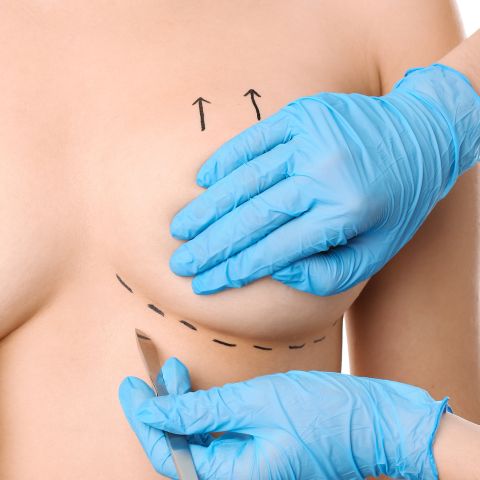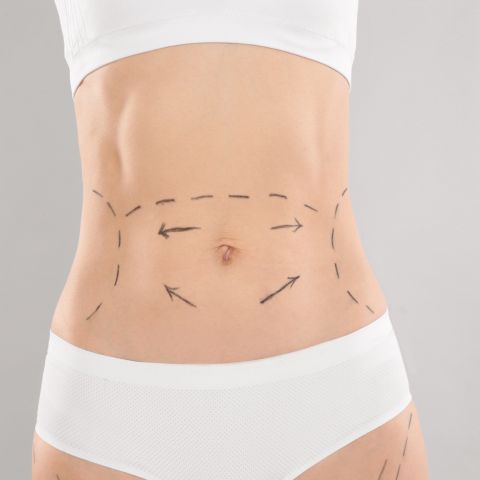

Vaginoplasty is a surgical procedure that aims to tighten the vaginal muscles, especially those at the vaginal opening and the vaginal canal. This surgery is often sought by women who experience a loss of vaginal tightness due to childbirth, aging, or other factors. Vaginoplasty can enhance the muscle tone, strength, and control of the vaginal walls. Apart from the functional benefits, many women choose this procedure for enhanced sexual satisfaction and increased confidence. Additionally, Vaginoplasty is also an essential component of male-to-female gender reassignment surgeries, where the procedure creates a neovagina. The specific approach and goals can vary based on individual needs and the reason for undergoing the surgery.
Pros of Vaginoplasty:
- Enhanced Vaginal Tightness: The primary benefit of the procedure is a tighter vaginal canal, which can lead to increased sensation during intercourse for some women.
- Increased Confidence: Many women report feeling more self-assured and rejuvenated following the surgery.
- Improved Sexual Satisfaction: By tightening the vaginal muscles, some women experience heightened sexual pleasure.
- Correction of Structural Defects: Vaginoplasty can address certain vaginal structural issues or deformities.
- Gender Transition: Vaginoplasty can create a neovagina, aiding in their gender transition.
Cons of Vaginoplasty:
- Surgical Risks: As with any surgery, there are risks involved, including infection, bleeding, and reactions to anesthesia.
- Loss of Sensation: In rare cases, there might be a loss or change in vaginal sensation.
- Scarring: There can be scarring, although it is typically internal and not visible.
- Recovery Time: It requires a period of recovery during which sexual activity and certain physical activities should be avoided.
- Cost: The procedure can be expensive, especially if not covered by insurance.
- Not Always Permanent: Effects of natural aging, subsequent childbirth, or other factors can diminish the results over time.
There are several reasons why an individual might seek vaginoplasty:
- Childbirth: Vaginal childbirth can lead to the stretching of the vaginal muscles, resulting in a loss of tone and elasticity. Some women seek vaginoplasty to restore the vagina to a pre-pregnancy state.
- Aging: As with other parts of the body, age can result in a loss of muscle tone and elasticity in the vagina. Vaginoplasty can help rejuvenate and tighten the vaginal canal.
- Sexual Satisfaction: Some women seek vaginoplasty to enhance sexual satisfaction, believing that a tighter vaginal canal might increase sensation during intercourse.
- Structural Defects: Congenital conditions or anomalies, such as a vaginal septum or other structural issues, might be corrected through vaginoplasty.
- Gender Transition: Transgender women might undergo vaginoplasty as part of their gender transition to create a neovagina.
- Emotional and Psychological Benefits: Some women might feel more confident and comfortable with their bodies after the procedure, leading to improved self-esteem and psychological well-being.
- Trauma or Injury: Accidents, surgeries, or other traumas might cause damage to the vaginal region, and vaginoplasty can be sought to repair or rectify such damages.
Each individual's reason for considering vaginoplasty will be personal and unique. It's essential to discuss the motivations and expectations with a qualified surgeon to ensure that the procedure aligns with the desired outcomes.
Determining if you are a good candidate for vaginoplasty requires a comprehensive evaluation by a qualified surgeon, but in general, potential candidates for the procedure often meet several of the following criteria:
- Physical Concerns: Women experiencing laxity or looseness of the vaginal muscles due to childbirth, aging, or other reasons.
- Age: Ideally, candidates should be over 18 years of age and have finished childbearing, as future pregnancies can reverse the results of a vaginoplasty.
- Good Health: As with any surgical procedure, candidates should be in good overall health. Those with chronic conditions should manage them effectively and consult with their primary care provider before undergoing the surgery.
- Realistic Expectations: It's crucial to have realistic expectations about the outcome of the surgery. While vaginoplasty can enhance vaginal tightness and potentially improve sexual satisfaction, it's not a guarantee for all individuals.
- Motivation: Those seeking the procedure for personal reasons and not due to external pressures or expectations are typically better candidates.
- Non-smokers: Smoking can impair wound healing and increase the risk of complications. If you're a smoker, you'll likely be advised to quit well before the surgery.
- Understanding the Procedure: Candidates should be well-informed about the surgical procedure, potential risks, recovery process, and the expected outcomes.
- Psychological Readiness: Ensure you are mentally and emotionally prepared for the procedure and the recovery period.
If you're considering vaginoplasty, it's essential to have a thorough consultation with a board-certified plastic surgeon or gynecological surgeon who can assess your individual circumstances, discuss your goals, and provide guidance on whether the procedure is right for you.
Vaginoplasty, also known as vaginal rejuvenation or tightening, is a surgical procedure that aims to tighten the vaginal canal and surrounding tissues. The procedure's approach and specifics can vary based on individual needs, but here's a general overview:
Procedure Steps:
1. Anesthesia: The patient is usually given general anesthesia, ensuring they're asleep and pain-free throughout the procedure. In some cases, local anesthesia with sedation might be used.
2. Incision: The surgeon makes an incision in the posterior vaginal wall (the area towards the back of the vagina). Excess vaginal lining (mucosa) is then removed.
3. Tightening: The underlying muscles, often stretched or separated due to childbirth or aging, are brought together and stitched to tighten the vaginal canal.
4. Closing Incisions: The incisions are closed with absorbable sutures, which means they don't typically need to be removed later.
5. Additional Procedures: In some cases, a vaginoplasty might be combined with other procedures, such as a labiaplasty (reshaping the labia) or perineoplasty (reconstructing the perineum), depending on the patient's needs and desires.
General Timeframe:
- The actual surgery typically takes between 1 to 2 hours, depending on the specifics of the procedure and whether additional surgeries are being performed simultaneously.
- After the surgery, patients might need to stay in the clinic or hospital for several hours for observation. Some might even require an overnight stay, although many can go home the same day.
- Recovery time varies among patients. Most individuals can return to work and their regular activities within a week or two. However, it's advised to refrain from sexual intercourse and the use of tampons for about six weeks to allow for proper healing.
As with any surgical procedure, it's crucial to follow post-operative instructions provided by the surgeon to ensure optimal healing and results.
After undergoing a vaginoplasty, the recovery period is crucial for ensuring optimal results and avoiding complications. Here's what patients can generally expect during this time:
Immediate Post-Procedure:
- Discomfort: It's normal to experience some pain, swelling, and discomfort in the treated area. Pain medications, as prescribed by the surgeon, can help manage this.
- Discharge: A mild bloody discharge can be expected for several days to a couple of weeks. This is a normal part of the healing process.
- Activity Restrictions: Patients are typically advised to avoid strenuous physical activities for the first few weeks. This includes lifting heavy objects, rigorous exercise, and sexual intercourse.
First Few Weeks:
- Hygiene: Keeping the surgical site clean is essential. Patients might be advised to take sitz baths (sitting in warm, shallow water) to aid healing and relieve discomfort.
- Follow-Up Appointments: These are vital for the surgeon to monitor the healing process, address any concerns, and remove stitches if non-absorbable sutures were used.
- Avoiding Sexual Activity: It's usually recommended to abstain from sexual intercourse for about six weeks post-surgery to ensure the vaginal area heals properly.
Longer-Term Recovery:
- Gradual Return to Activities: As the healing progresses, patients can gradually resume their regular activities. It's essential to listen to one's body and avoid pushing too hard too soon.
- Continued Swelling and Sensitivity: While the most noticeable swelling will reduce within the initial weeks, minor swelling and sensitivity can continue for several months.
- Final Results: The full results of the vaginoplasty will become apparent a few months after the surgery once all swelling has subsided and the tissues have settled.
Throughout the recovery period, it's essential to stay in close communication with the surgeon or medical team. Following their post-operative instructions closely and promptly reporting any signs of complications, such as excessive pain, foul discharge, or fever, is crucial for a smooth recovery.
Caring for the surgical site after a vaginoplasty is crucial to ensure proper healing, minimize complications, and achieve the best results. Here are general post-operative care guidelines:
1. Hygiene: Keeping the surgical area clean is of utmost importance.
- Gentle Cleaning: Use a mild, fragrance-free soap and lukewarm water to clean the outer vaginal area. Pat dry gently with a soft cloth.
- Sitz Baths: Many surgeons recommend sitz baths, which involve sitting in shallow warm water for a few minutes, a couple of times a day. This can help relieve discomfort and promote healing.
2. Avoid Tampons: For any bleeding or discharge, use sanitary pads instead of tampons to avoid introducing foreign objects into the healing area.
3. Wear Loose Clothing: Loose-fitting underwear and clothing can reduce irritation and allow the surgical site to breathe.
4. Avoid Sexual Activity: Refrain from sexual intercourse and avoid inserting anything into the vagina for the time frame recommended by your surgeon, typically about six weeks.
5. Follow Medication Guidelines: Take prescribed medications, including pain relievers and antibiotics, as directed. Always check with your surgeon before taking over-the-counter medications or supplements.
6. Monitor for Infection: Be alert for signs of infection, such as increased redness, swelling, foul-smelling discharge, or fever. If you notice any of these symptoms, contact your medical team immediately.
7. Avoid Strenuous Activities: Refrain from heavy lifting and strenuous exercises for the duration recommended by your surgeon, as these can strain the surgical site and potentially cause complications.
8. Attend Follow-Up Appointments: Ensure you attend all post-operative check-ups, as this allows the surgeon to monitor the healing process and address any concerns promptly.
9. Stay Hydrated and Eat Nutritiously: Proper nutrition and hydration can support the body's healing processes. Focus on a balanced diet with adequate protein, vitamins, and minerals.
10. Avoid Smoking: Smoking can impair wound healing and increase the risk of complications. If you're a smoker, try to quit before the surgery and certainly refrain from smoking during the recovery period.
11. Rest and Sleep: Your body heals best when it's well-rested. Ensure you get adequate sleep and rest when you feel fatigued.
Always follow your surgeon's specific post-operative instructions, as care can vary based on individual circumstances and the exact procedure performed. If you have any doubts or concerns, always reach out to your medical provider.
Turkey has become a sought-after destination for various medical and aesthetic procedures, including vaginoplasty, due to its combination of experienced surgeons, state-of-the-art medical facilities, and cost-effective prices.
Turkey: Vaginoplasty costs in Turkey are considerably more affordable than in many Western countries. Typically, the price ranges from €1,500 to €3,500, depending on the clinic and the specifics of the procedure. These prices often include consultation fees, surgical procedures, post-operative care, and sometimes even accommodation or transport.
Western Europe: In countries like the UK, France, or Germany, the cost for vaginoplasty can vary greatly based on factors like the surgeon's experience, clinic location, and the exact nature of the surgery. Prices can range anywhere from €4,000 to €8,000 or more.
USA: In the United States, vaginoplasty is notably more expensive. The cost can range from $5,000 to $12,000 or even higher, depending on the region, surgeon's reputation, and specifics of the treatment.
When comparing prices, it's essential to note that lower costs in Turkey don't equate to compromised quality. The country has many internationally accredited hospitals, and surgeons are often trained both domestically and in renowned institutions abroad. Additionally, the comprehensive cost in Turkey often includes many additional services, making it an attractive package deal for many international patients. As always, thorough research and due diligence are vital before making any medical decisions.
Choosing Elara Medical Tourism for your Vaginoplasty procedure in Turkey ensures that you receive world-class care combined with an exceptional travel experience. Here's why:
1. Expertise and Accreditation: Elara Medical Tourism collaborates with the top-tier hospitals and experienced surgeons in Turkey, ensuring you receive quality care. These hospitals often have international accreditations, signifying they meet global standards in medical care.
2. Affordability: While prioritizing quality, Elara offers competitive pricing. This means you receive top-notch medical services at a fraction of the cost you'd incur in Western Europe or the USA.
3. Holistic Care: Beyond the surgery, Elara Medical Tourism provides comprehensive care – from initial consultation, personalized treatment plans, to post-operative follow-ups.
4. Travel and Logistics: One of the biggest concerns when seeking medical treatment abroad is travel. Elara eases this process, offering services that may include accommodation bookings, airport transfers, and even sightseeing tours, ensuring a seamless experience in Turkey.
5. Multilingual Support: The Elara team provides support in multiple languages, bridging any communication gaps and ensuring you're always informed and comfortable.
6. Personalized Attention: Elara understands that each patient has unique needs and concerns. They prioritize personalized care, ensuring that every aspect of your journey is tailored to your comfort and preferences.
With Elara Medical Tourism, you're not just receiving a medical procedure; you're embarking on a journey where your health, comfort, and experience are given paramount importance.




